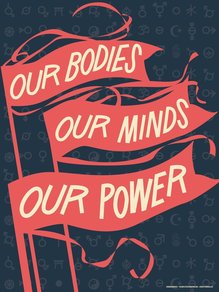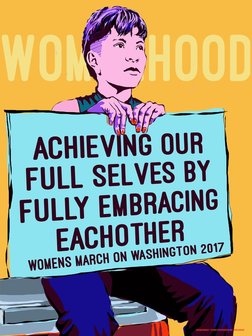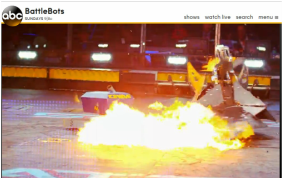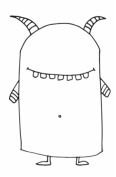I support art and protest as an avenue for social change, and I believe in the freedom of expression. So it follows that Fiona Apple (whose Extraordinary Machine album is brilliant, by the way) has a right to create politically-motivated music that reflects her views on the fact that our new president has said downright awful things about women. Things that suggest it is ok to grab women inappropriately or at least talk about doing it if one is trying to reinforce their manliness. It’s not just locker room talk. It’s disgusting, and we have a right to be angry.
But when you march down the street this weekend, rally at your state capital next month, or Take Back the Night this April, I hope you strongly reconsider “Tiny Hands” as your rallying cry. Though “we don’t need your tiny hands anywhere near our underpants” is catchy, it actually undermines the very principles of women’s movement and gender equality. Here’s why.
First, attacking Donald Trump for his alleged penis size is not only cheap, lazy, and completely unrelated to real criticisms that one might bring against him—it actually reinforces the kind of rigid gender roles many of us in this movement try to deconstruct. One of the underlying assumptions of gender inequality is that, as a society, we have unrealistic expectations for who a man or woman should be. And when we fail to live up to them, we get a pushback. Women get called bitches for being too assertive. Men get called bitches and pussies and slew of gay slurs for crying at movies, not drinking enough beer, or not being tough enough.
This system can work great for you if you follow the rules, stay within the boundaries of your society-deemed gender, and do whatever you can to maintain your womanly-woman or manly-man image. And the pressure to stay in these rigid gender boxes means that people—especially men—often take defensive and offensive measures to maintain these images at all costs. We’ve seen how this played out in the presidential primary. In response to Donald Trump’s diminutive nickname for Marco Rubio, Rubio’s response was to attack Trump’s hand (ahem, penis) size. It was a battle of masculinity, and may the best display of manliness win. Right?
Though I appreciate the doubly-layered consent and reproductive rights message of not wanting “hands anywhere near our underpants,” the penis size attack seems hypocritical as a rallying cry if we really believe that loosening up rigid gender roles is central to achieving gender equality. Hypocritical, and low. Literally below the belt low.
Second, an attack on penis size is a form of body-shaming I just cannot get behind. It wasn’t cool when New Girl did that terrible episode that mocked what the gang referred to as a guy’s “micropenis,” it wasn’t funny when naked Trump statues perpetuated discrimination based on body and genital size, and it isn’t at all ok to mock the bodies of people who identify across the transgender spectrum. So what makes it different now?
A central focus of social movements focused on equality is undoing harmful power dynamics that keep the dude with the tiny hands down and the dude with the big hands up. It’s not about switching the power dynamics so that tiny dude walks all over big dude, but about changing the conditions of the arrangement so that little dude can enjoy the same freedoms and privileges as big dude. It’s about equal opportunity, freedom from discrimination, and a better quality of life.
When we make attacks based on penis size, we’re using an assumption of perceived lack of masculinity to make ourselves seem superior. And we’re doing it through body-shaming. It’s like telling a fat joke to make yourself feel skinnier and more powerful. Would we incorporate a fat joke into our march chant? I don’t think so.
Third and finally, making “Tiny Hands” our feminist anthem only functions to re-position Donald Trump at the center of our efforts. Though his comments have certainly been a catalyst for renewed activist energy, making him the focus of women’s rights by chanting about his penis over and over seems misguided. Change those lyrics to grabby hands and I’m more on board. Start a round of “I am woman, hear me roar” and I’ll even join you.
All I am saying is that, fellow activists, we can do better this. We can do better than penis size attacks and body-shaming and insults to make ourselves feel temporarily superior. We can be angry and clever and effective without being hypocritical. We can march to an anthem that is consistent with our goals of genuine equality. We can rise, but not at the expense of our integrity.








 RSS Feed
RSS Feed